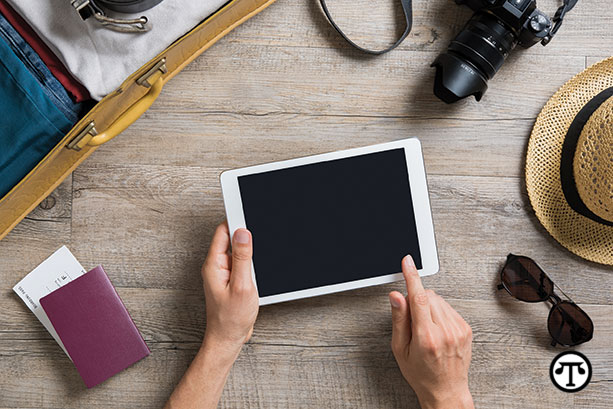
(NAPSI)—As a father, Maurice Gibson says his smartphone is integral in documenting his children’s memories from vacations. But as an assistant dean for the College of Information Systems and Technology at University of Phoenix, he worries about the risk of losing much more than his data if his phone is hacked.
Gibson warns that people may overlook cybersecurity best practices when traveling if they focus primarily on protecting information like credit card numbers or passwords. He encourages Americans instead to look at cybersecurity as a way to protect not only personal data1 but memories.
“Most of our experiences today are captured in moments through our smartphones. I have children, and we’re always taking photos of them while on vacation. Losing those photos is like losing their childhood,” Gibson says. “For me, looking at cybersecurity on a personal level helps to incorporate smart cybersecurity practices.”
Three-fourths of Americans bring their smartphone with them on vacation, according to a survey from University of Phoenix. The survey also found that 48 percent of respondents worry about cybersecurity risks while traveling. However, 55 percent feel that the need to use personal devices on vacation outweighs cybersecurity risks.
Americans practice habits that put them at risk of cyberattacks, but very few take measures to prevent data breaches. Three in 10 access credit card or banking websites while on vacation and 23 percent make purchases online. However, only 39 percent of those surveyed update antivirus software before traveling and fewer than a quarter (24 percent) change passwords2.
Gibson shares three tips to help prevent data breaches this spring break.
Post photos online from the hotel or home, not in public.
Gibson says that people should be wary of how often they post photos online or on social media while traveling, especially on unsecured public Wi-Fi networks, which are often used to avoid mobile data limits and provide criminals an opportunity to breach devices. Rather than logging online at a coffee shop or in the hotel lobby, he says to wait until you are in your room and can use a network that is password protected.
Disable Wi-Fi auto-connect and location tracking services.
Gibson encourages travelers to disable their phone’s feature that allows it to auto-connect to public Wi-Fi networks when in public, as well as turn off location tracking that can make it easier for criminals to track and access data. Refrain from providing information on how long you will be away because it can put your home at risk.
Avoid making online purchases in public.
Popular spring break destinations can be prime locations for criminals looking to steal credit card information or other data. Gibson warns travelers not to make online purchases on public Wi-Fi. These networks are not secure and can be monitored by anyone, making sharing payment information dangerous. If you must make purchases online in public, use your phone’s more secure hotspot.
For the complete survey findings, visit www.phoenix.edu/about_us/media-center/news/uopx-releases-summer-travel-cybersecurity-survey-results.html. To learn more about the University’s degree offerings, visit phoenix.edu/technology.
“People may overlook cybersecurity best practices when traveling if they focus on protecting credit card numbers or passwords, warns Maurice Gibson, assistant dean for the College of Information Systems and Technology at University of Phoenix. http://bit.ly/2sBd4mT”
